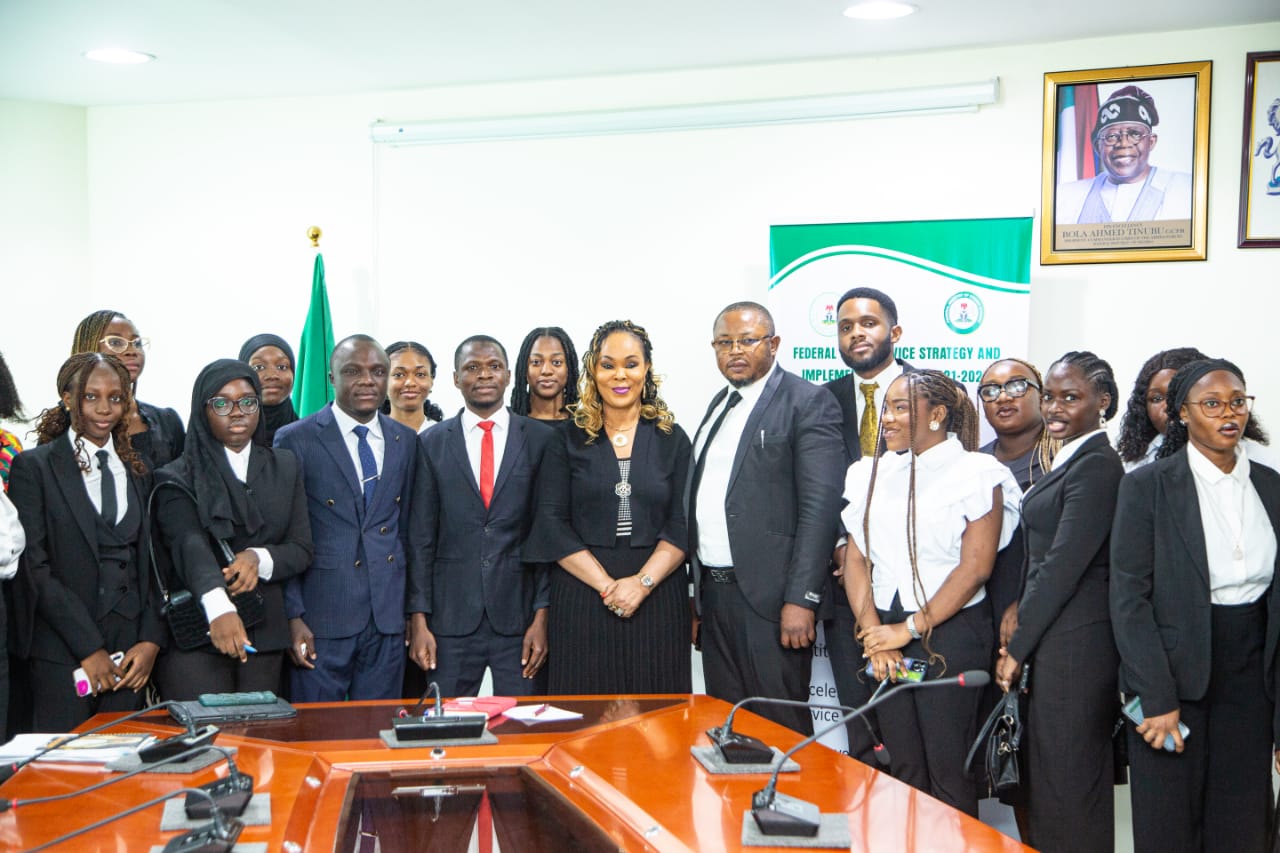In line with its drive for gender inclusiveness in Nigeria, the Federal Ministry of Women Affairs has initiated a partnership with the West African Law Students Association in the area of technology as part of measures to equip female law students with requisite skills and knowledge to effectively align with contemporary global requirements for legal practice.
Speaking during a courtesy visit by a delegation from the West African Law Students Association, the Honorable Minister of Women Affairs, Barr Uju Kennedy Ohanenye stated that non-inclusiveness has remained one of the factors that contribute to gender inequality with corresponding impact on economic status of Nigerian women including the legal profession, she therefore reiterated the need for a level playing ground to be provided for Nigerian women in the nation’s legal profession to actively contribute their quota to national growth.
Ohanenye also pledged that she will work towards integrating the Small and Medium Enterprises Development Agency of Nigeria (SMEDAN) into the partnership to enable the student Lawyers to benefit from the proposed plan by SMEDAN to integrate Nigerian youths into its enterprenual and empowerment program which aligns with the present administration’s renewed hope policy thrust.
She therefore urged the Lawyers’ association to work as vanguards of hope for a better Nigerian society.
Earlier in his presentation, the President of association of Lawyers Mr. Nazir Sanusi commended the Minister for the sustained efforts the Ministry is making under her watch to reposition the status of Nigerian women and the vulnerable people.
In the same vein, he added that the association has the primary goal of bringing student Lawyers across the Sub-Sahara Africa on the same platform to interact, learn and share educative and informative ideas that will effectively re-shape the legal systems in the near future.
Still on gender inclusiveness, Sanusi added that a well-structured empowerment of female Lawyers will eliminate gender gap in the legal practice where there more male practitioners, increase competitiveness in legal practice, improve legal research and analysis in addition to exposing the female gender to legal technology, data analysis and other innovative areas.
